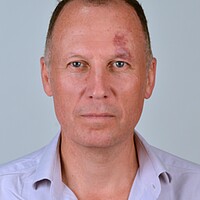On one tiny Greek island, a warm welcome for Syrian refugees
Loading...
| Tilos, Greece
They are the forgotten people – more than 60,000 refugees who have been languishing in camps in Greece after their dreams of finding a new life in Europe were thwarted.
The Syrians, Iraqis, and Afghans are stuck in limbo, waiting to hear whether they will be granted asylum and allowed to settle in the European Union – or rejected and sent back to Turkey, from where they crossed in boats to Greece.
But amid the grim picture, a tiny island in the Aegean Sea is offering a glimmer of hope and possibly a lesson for how the rest of Greece – and indeed the whole of Europe – could tackle the continent’s refugee crisis.
Ever since the migration crisis erupted in 2015, the island has embraced asylum seekers. It is now home to a dozen Syrian families, about 70 people in total, many of them young children. That may not seem a large number in the scale of things – until you bear in mind that the entire population of Tilos is fewer than 500 people.
The islanders are keen to integrate the newcomers as much as possible and hope they will forge new lives amid the olive trees and ancient stone terraces of Tilos. And they think their acceptance of refugees could – and should – provide an example to the rest of Europe.
“If a little island like ours can support 12 families, then others can do the same, in proportion to their population. Bigger communities can take larger numbers. We can solve the refugee problem,” says Maria Kamma, the outspoken mayor of Tilos. “We think that the arrangement we have here is a model that could be exported to the rest of Greece and the whole of Europe.”
A more welcoming home
Tilos is an outcrop of limestone mountain peaks, pebble beaches, whitewashed churches, and goats – lots and lots of goats. A two-hour boat ride from Rhodes, it is part of the Dodecanese chain of islands and lies just a few miles off the coast of Turkey.
The Syrians live in a cluster of prefabricated cabins grouped around a shower block and a communal cooking area.
It is hardly luxurious, but it is much cleaner and less institutional than the refugee facilities on other Greek islands such as Lesbos, where thousands of asylum seekers are crammed together behind wire fences.
Here on Tilos, the people are free to come and go. Many of the adults have found jobs – in shops, restaurants, the local bakery, and as day laborers.
It helps that the camp, shaded by mature trees, is right in the heart of Livadia, the main port.
It is a few hundred yards from a long beach, where the Syrian children have been learning to swim.
“It is so much better than where we were before,” says Mohsen Barak, who fled his native city of Al-Hasakah in northeastern Syria because of the war. He and his family have been living on Tilos for seven months.
“We were on Rhodes, in a refugee camp inside an old slaughteryard. It was really bad. We spent nearly a year there.”
The camp on Tilos was established about a year ago by Solidarity Now, a Greek nongovernmental organization, with help from UNHCR, the UN’s refugee agency.
“The refugees are much happier than they were at first, especially now they have found jobs. It’s not good to sit around all day with nothing to do, you become angry and depressed,” says Spiros Aliferis, a team leader from the NGO. “The kids go to the playground in the village, they swim in the sea.”
The children attend Greek and English language classes from Monday to Friday and many can already converse comfortably in their adopted language. They will start going to the island’s primary and secondary schools when the school year starts next month.
'Greek with a Scandinavian attitude'
The presence of the refugees has inspired plans to build a cheese factory on Tilos, to make cheese from the milk produced by the many goats that wander its herb-scented mountains and valleys.
There are 15,000 of them, outnumbering the human population by 45 to 1.
Currently, just one or two shepherds use the milk to make cheese, and that’s for their own consumption. The plan is to produce enough to export, in a cheese factory that will provide jobs for both Syrians and locals.
“We think there's a big potential,” says Stathis Kontos, adviser to the mayor.
“The mentality on Tilos is different from other islands,” he says. “I like to say the people are Greek but with a Scandinavian attitude. They like to help others.”
While some of the refugees hope to be reunited with relatives already settled in Germany and other EU countries, the mayor hopes the rest will remain and rebuild their lives on the island.
“I’d like them to stay,” she says. “They’re human beings. It’s their right to live in humane conditions. Tilos is a place where we can support their dreams of a peaceful life.”









